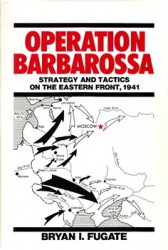Clearly a distraction was needed to help keep the lid on sectional troubles. Some people hoped to find one in foreign affairs. The spirit of manifest destiny explains this in large part; once the United States had reached the Pacific, expansionists began to think of transmitting the dynamic, democratic U. S. spirit to other countries by aiding local revolutionaries, opening new markets, or perhaps even annexing foreign lands. This became known as the Young America movement, whose adherents were confident that democracy would triumph everywhere, even if by conquest.
One of those who dreamt of conquest was an adventurer named William Walker. In 1855 Walker, backed by an American company engaged in transporting migrants to California across Central America, seized control of Nicaragua and elected himself president. He was ousted two years later but made repeated attempts to regain control until, in 1860, when he died before a Honduran firing squad. There were reasons unrelated to slavery why Central America suddenly seemed important. The rapid development of California created a need for improved communication with the West Coast. A canal across Central America would cut weeks from the sailing time between New York and San Francisco. In 1850 Secretary of State John M. Clayton and the British minister to the United States, Henry Lytton Bulwer, negotiated a treaty providing for the demilitarization and joint Anglo-American control of any canal across the isthmus.
As this area assumed strategic importance to the United States, the desire to obtain Cuba grew stronger. In 1854 President Franklin Pierce instructed his minister to Spain to offer $130 million for the island. The State Department prepared a confidential dispatch suggesting that if Spain refused to sell Cuba, “the great law of self-preservation” might justify “wresting” it from Spain by force.
News of the dispatch—known as the Ostend Manifesto—leaked out, and it had to be published. Northern opinion was outraged by this “slaveholders’ plot” to add another slave state to the Union. Europeans claimed to be shocked by such “dishonorable” and “clandestine” diplomacy. The government had to disavow the manifesto, and any hope of obtaining Cuba or any other territory in the Caribbean vanished.
The expansionist mood of the moment also explains President Fillmore’s dispatching an expedition under Commodore Matthew C. Perry to try for commercial concessions in the isolated kingdom of Japan in 1854. Perry’s expedition was a great success. The Japanese, impressed by American naval power,


A photograph of Commodore Matthew Perry in 1855 juxtaposed with a Japanese portrait of him. When Perry's squadron arrived in Edo Bay (Tokyo), the Japanese initially ordered him to leave. Japanese writers had long warned of the "barbarians of the west” who with "squinting eyes and limping feet” sought to override the "noble nations” of Asia.
Agreed to establish diplomatic relations. In 1858 an American envoy, Townsend Harris, negotiated a commercial treaty that opened to American ships six Japanese ports heretofore closed to foreigners. President Pierce’s negotiation of a Canadian reciprocity treaty with Great Britain in 1854 and an unsuccessful attempt, also made under Pierce, to annex the Hawaiian Islands are further demonstrations of the assertive foreign policy of the period.




 World History
World History

![United States Army in WWII - Europe - The Ardennes Battle of the Bulge [Illustrated Edition]](https://www.worldhistory.biz/uploads/posts/2015-05/1432563079_1428528748_0034497d_medium.jpeg)







